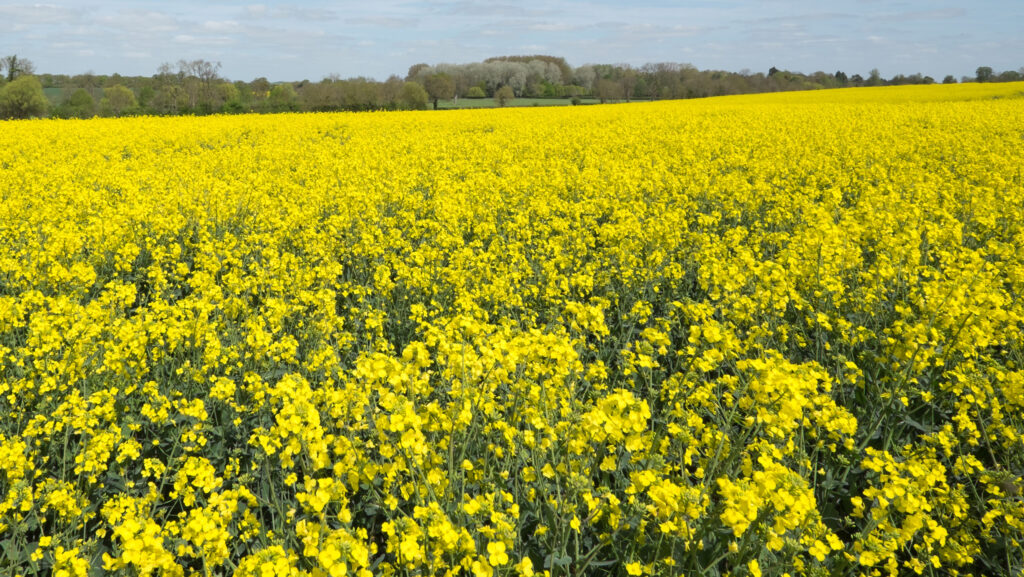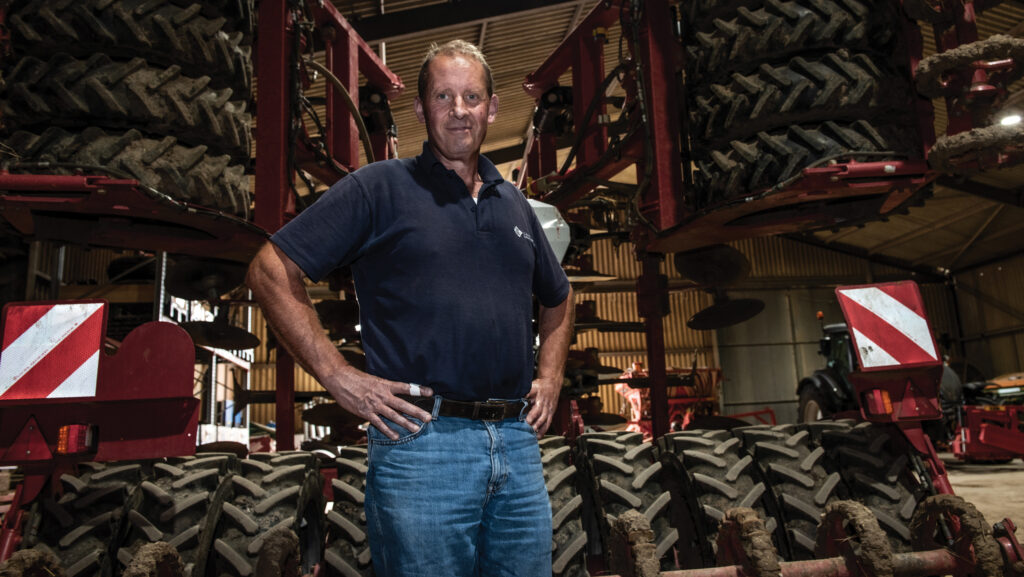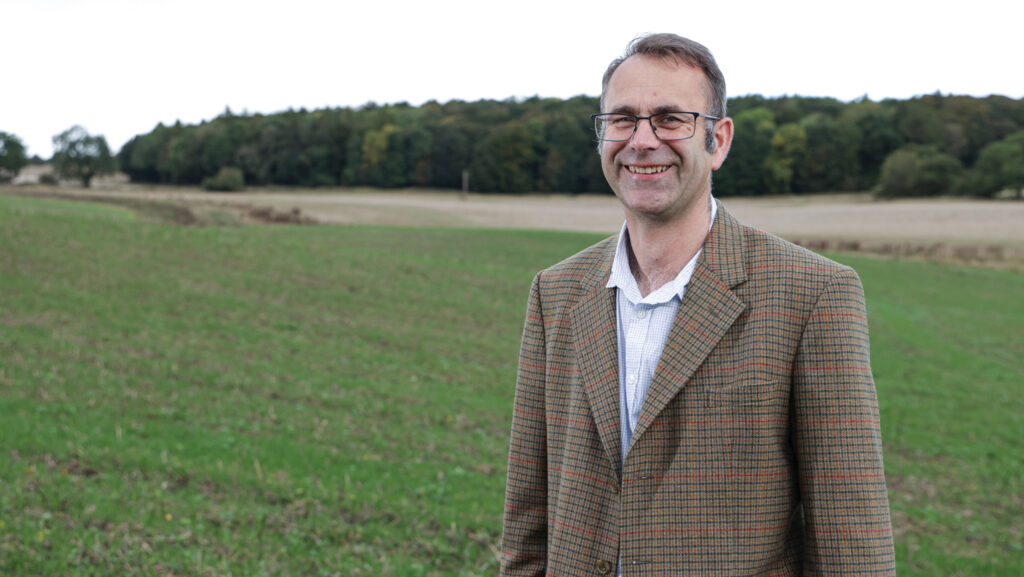Transition farmers ditch OSR and see direct-drilling benefits
 © Tim Scrivener
© Tim Scrivener As our Farmers Weekly Transition farmers respond to shifts in farming policy, they see benefits of improved soil health.
Duncan Blyth in Norfolk replaces oilseed rape for winter-grazed catch and cover crops and Philip Vickers in Durham moves to direct-drilling winter cereal.
See also: How growers can build resilience on arable farms
Duncan Blyth
Farm facts
Albanwise Farming, Barton Bendish, Norfolk

© Phil Weedon
- Size: 2,650ha
- Annual rainfall: 660mm
- Soil type: Light chalk to heavier loams
Transition goals
- Improve soil health
- Develop natural capital revenues
- Achieve carbon net zero by 2030
A big shift in farming policy has seen Albanwise Farming cease growing oilseed rape at its Barton Bendish estate in Norfolk.
This has provided the opportunity for winter-grazed catch and cover crops to be established on some of those 240ha.
Cabbage stem flea beetle damage and weather-related challenges at establishment combined with poor prices across successive years meant the financial return of OSR no longer stacked up.
Farm manager Duncan Blyth says returns had been “pretty average” over the past five years.
“Based on that five-year average, we came to the conclusion that we were not making money out of OSR,” he says.
The rollout of the Sustainable Farming Incentive (SFI) encouraged the business to increase its acreage of cover and catch crops, in line with its Transition goal of improving soil health, and those 240ha have been part of that.
“Improving soil health is a goal we have been working towards for the past five years, but the onset of SFI has cemented the regime,” says Duncan.
The business has not yet joined the scheme but is on the point of submitting an application.
In the past four years, through a regular cycle of testing and working with precision farming firm SOYL, it is establishing a baseline of soil organic matter (SOM).
Duncan says this baseline will give an important reference point for monitoring SOM levels going forward, which should increase through the inclusion of more diverse crops and other initiatives, such as straw-for-muck deals with local pig farms.
The farm also imports poultry manure and digestate from two anaerobic digestion plants.
“With the looming threat of the carbon tax on fertiliser, we have to learn to substitute as much as we can with nutrients from other sources,” Duncan acknowledges.
This will help the business in its ambition to achieve carbon net zero on the estate by 2030, although Duncan acknowledges that attaining that target currently seems unreachable.
Over the past 15 years or more, Countryside Stewardship agreements have helped the farm augment natural capital and, since it entered a Higher Tier agreement in 2023, there has been a significant amount of hedge planting and laying.
“There is a lot of good stuff going on in terms of putting those features in,” says Duncan.
Philip Vickers

© Dave Charnley
Farm facts
Raby Estates, County Durham
- Size: 1,250ha
- Annual rainfall: 650mm
- Soil type: Loam, high magnesium content
Transition goals
- Maintain margins while changing approach
- Improve soil health and resilience
- Enhance the natural environment
The response of farm soils to direct-drilling winter cereals in mid-November verified the wisdom of a shift at Raby Estates, Durham.
The block hasn’t been ploughed for three years, land which historically was some of the more difficult land to establish.
“The drill was running as well as could be expected at that time of the year and that was not the case in the first year we direct-drilled it,” says farm manager Philip Vickers.
“The way we now manage the land has definitely made a difference, soils are already more resilient.”
This was after what he reflects on as one of the most difficult years he has experienced in his farming career.
Although establishment in autumn 2023 had been good, in common with many arable growers it went “horribly wrong” in spring 2024, by which time months of rain were taking their toll.
Harvest was protracted and some remedial work with a subsoiler was needed to repair the damage.
Yields of spring barley and spring beans were disappointing, but winter barley and winter beans fared better, as did wheat.
“The wheat produced substantially more than we had predicted. I am pleased and surprised to see the wheat store full,” says Philip.
But he points out that it is margins that matter, not yields, although they feed into those figures.
While the target is to use conventional cultivation to establish only 10-15% of crops, possibly extending direct drilling to all acreage, 30% of fields had to be ploughed this year because of the poor weather.
“We are still in the right place though, in terms of improving soil health,” Philip observes.
The challenges of the past year have concentrated his mind on what the cropping plan might look like going forward.
“We will move slightly away from spring cropping and look at options that give entry into wheat, spring beans won’t feature at all.”
A Transition aim to enhance the natural environment sees hedges now cut in a three-year cycle, not annually as had been the case.
“We are paying attention to the biomass and allowing the hedges to grow thicker and wider,” Philip explains.
